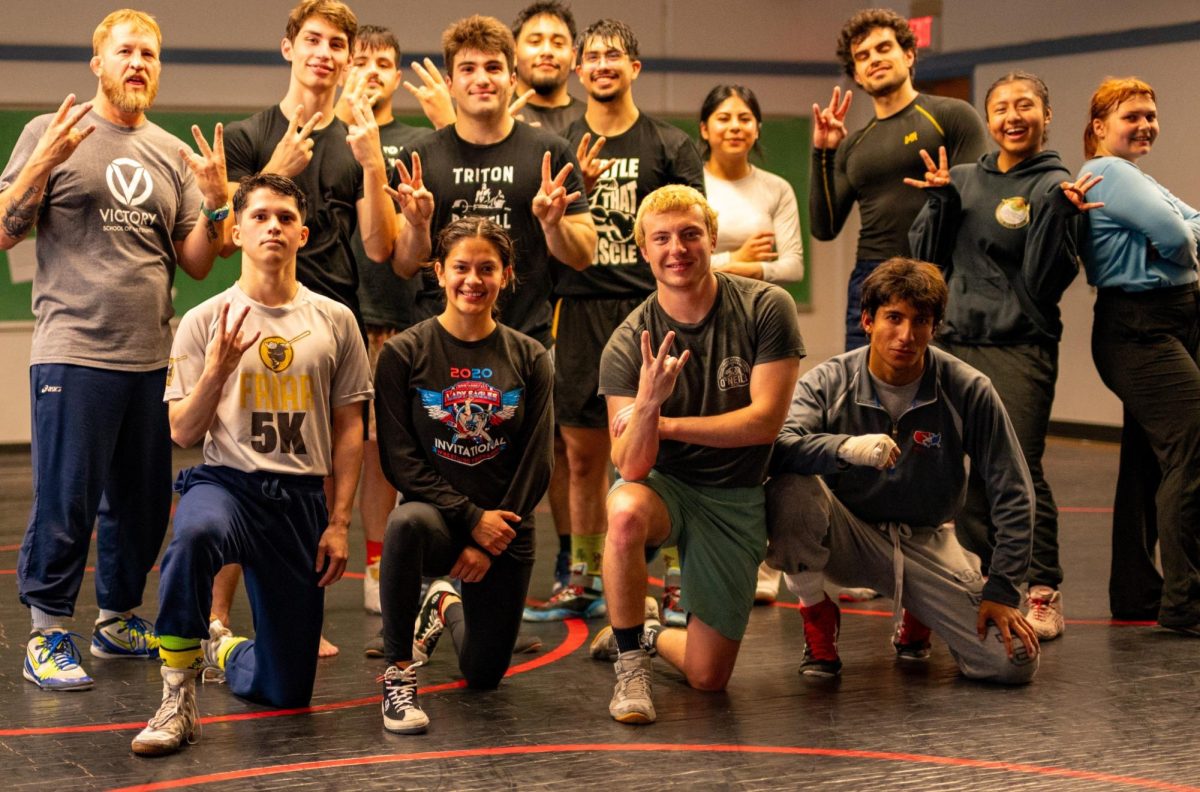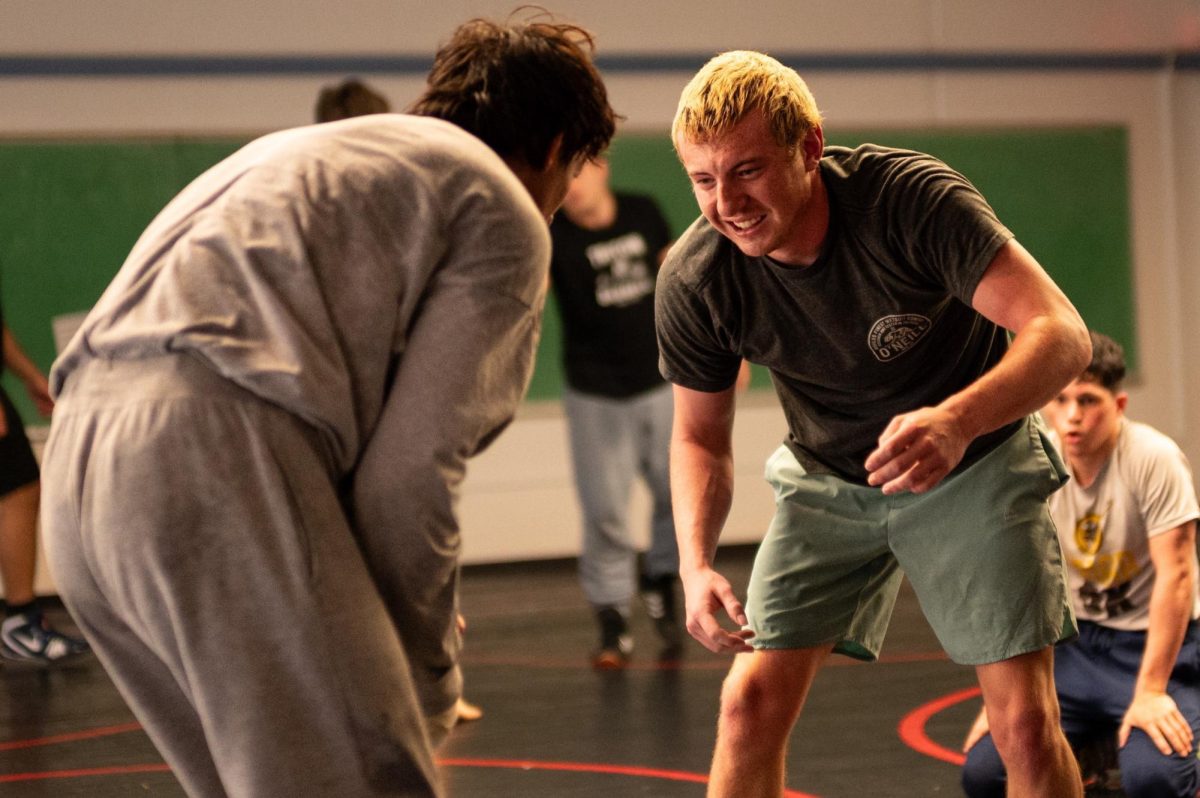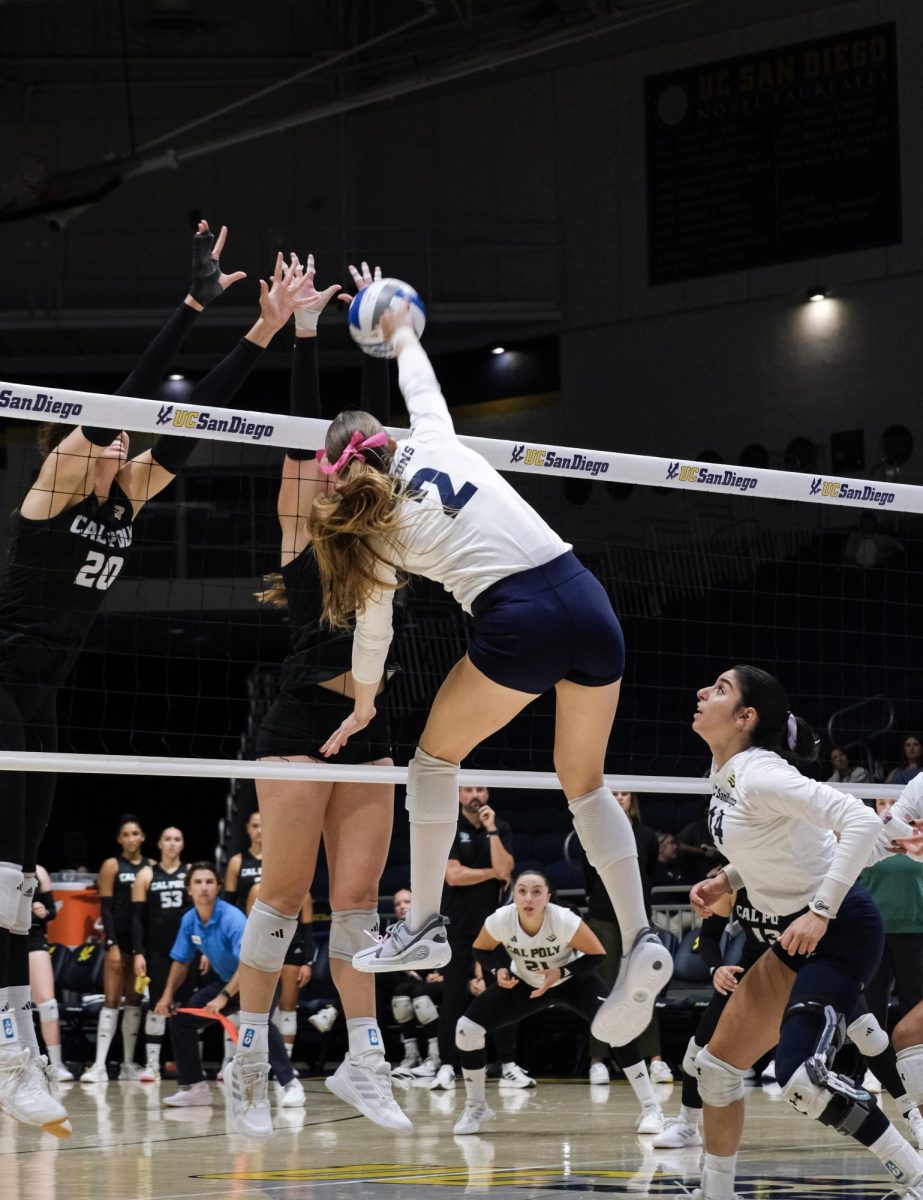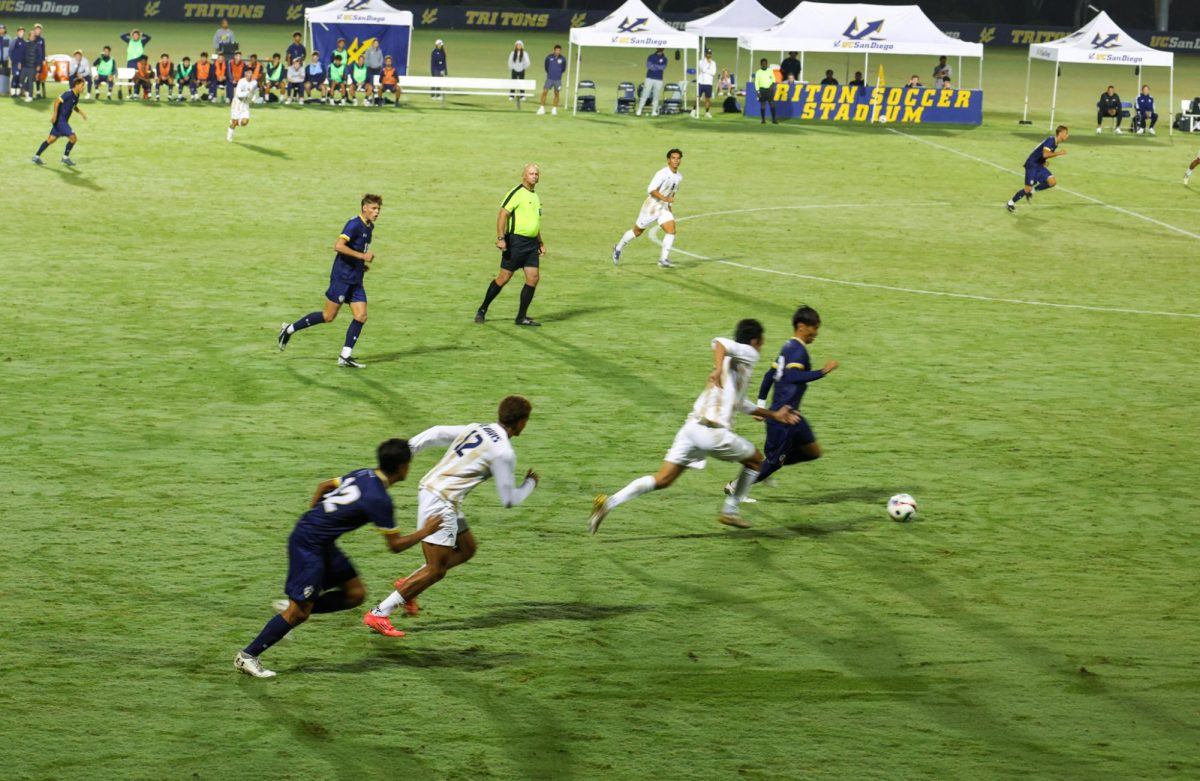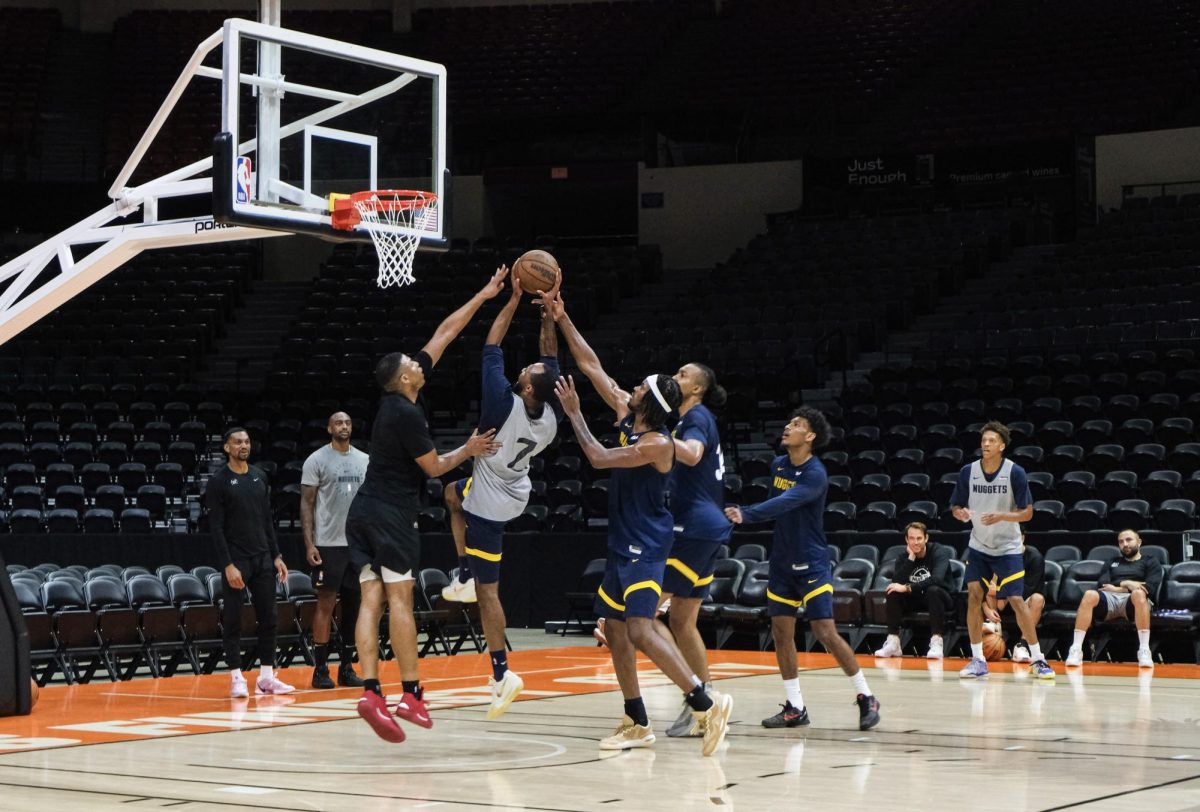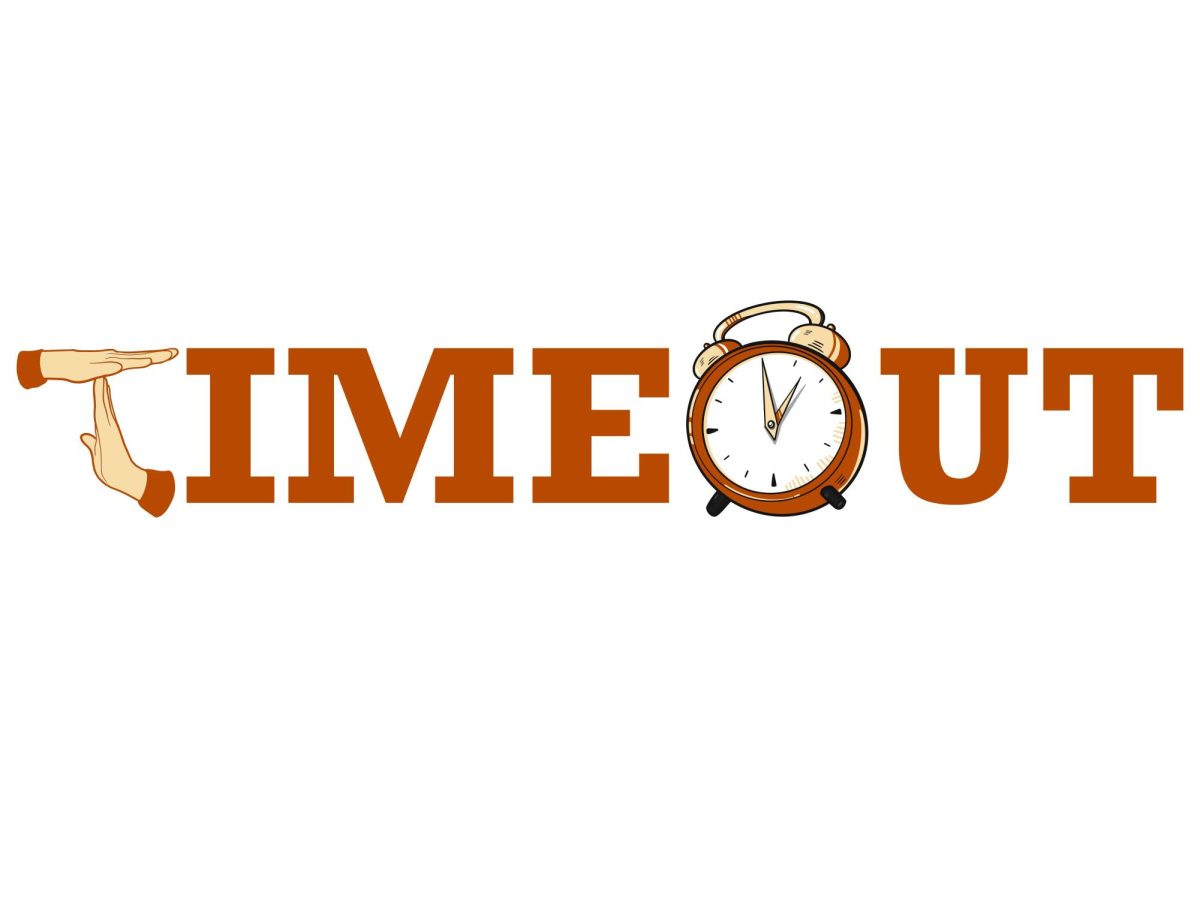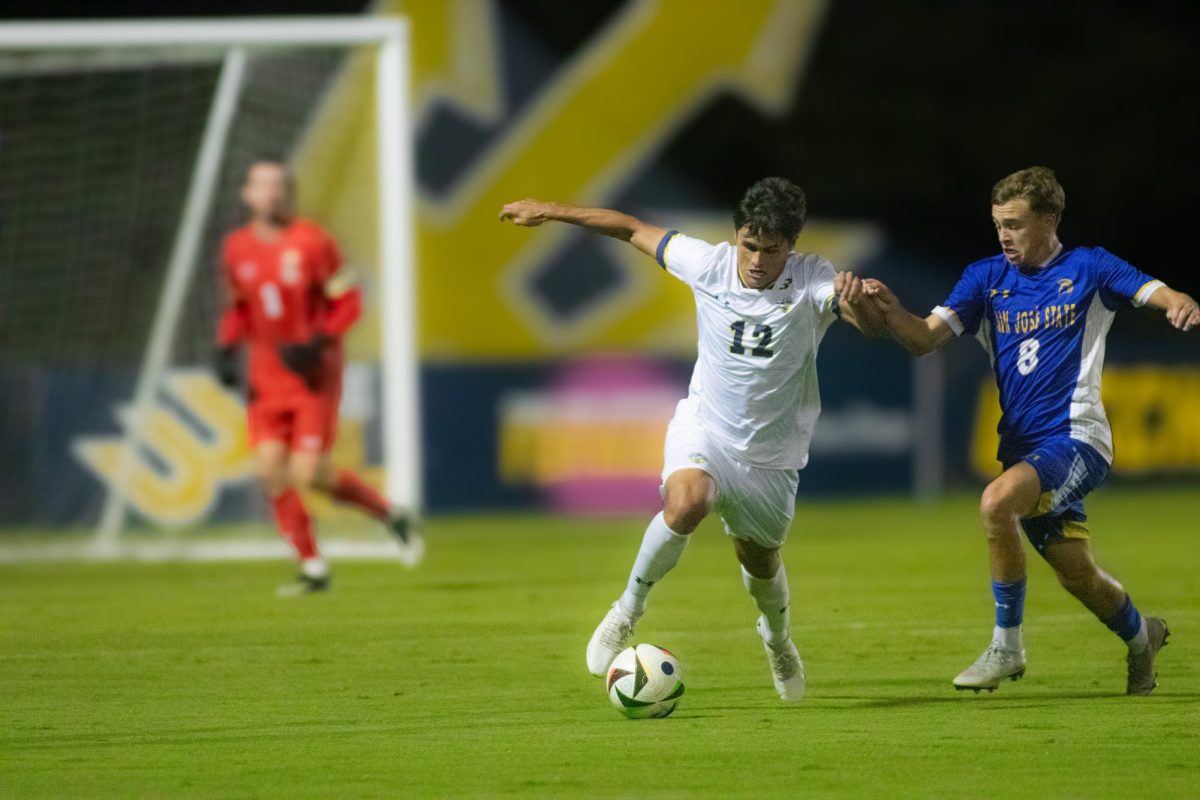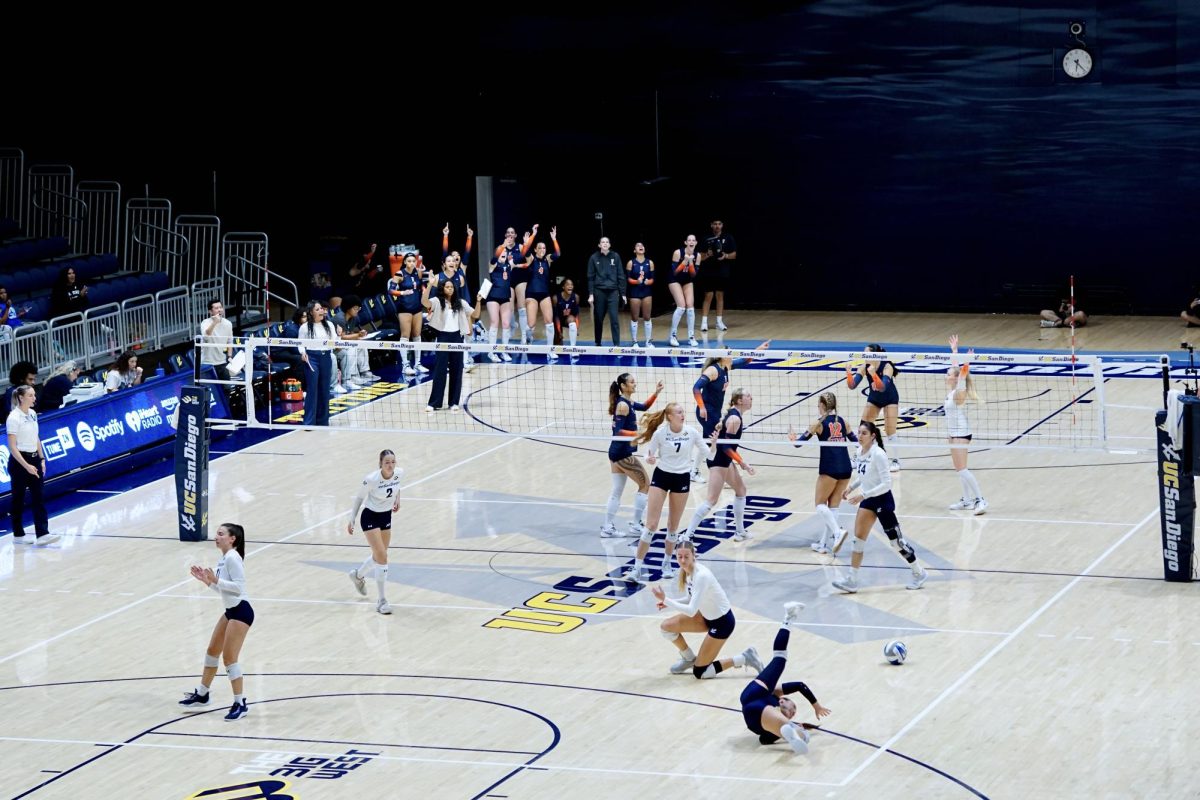This article was last updated on May 28 at 4 p.m. For corrections, see below.
UC San Diego’s Wrestling Club opened its doors in Fall 2024, kicking off a fresh era for the sport in the Triton community. The newly formed team, which was founded as a Center for Student Involvement recreation club, is currently seeking recognition as a club sport under UCSD Recreation.
Incoming club president, third-year Diego Otero-Caldwell, has high hopes for the team’s recent application to be UCSD’s newest club sport.
“Our team has checked all the boxes that the school wants to make us a new club sport,” Otero-Caldwell said.
Currently, UCSD Recreation recognizes 30 competitive sports club teams. To be considered a sports club, the prospective organization must submit an application with proof that the club fulfills certain criteria, including having at least 10 members and two club officers, as well as participating in at least five collegiate competitions.
The Wrestling Club’s current designation means it has less control of where and when practices take place.
“Finding schedules that worked with the athletes and with other clubs that wanted to use the space as well are all expected hurdles that we’ve been dealing with,” Otero-Caldwell said.
Despite its current limitations, the team had a booming first year, fostering a tight-knit community on and off the mat. The club hosted numerous social events and practices, and a handful of Tritons represented UCSD in the 2025 U.S. Marine Corps Women’s National Championships and the 2025 CLAW U.S. Open Championships.
Much of this success can be attributed to the determined efforts of the club’s founder and outgoing president, second-year Sofia Ruiz-Murphy. According to new head coach Andrew Cook — who had an illustrious coaching career over the past 27 years before joining UCSD’s Wrestling Club in October 2024, then becoming head coach April 2025 — Ruiz-Murphy tirelessly created a strong foundation for the growing team.
“The amount of work that Ruiz-Murphy put into this club is immeasurable,” Cook said. “Going forward, we’re going to utilize all the relationships that she has built throughout the school.”
The club’s success has been overwhelming, easily reaching the 30-person maximum capacity of the rooms that they practice in. Being recognized as a club sport will potentially allow the team to practice in larger spaces and more closely accommodate the most dedicated and consistent wrestlers on the team.
“Consistently, with every quarter, we have very quickly met our member cap,” Otero-Caldwell said. “We’re really looking forward to becoming a club sport and opening up to more people.”
The club features a notably large women’s roster. Otero-Caldwell explained that the team has an equal number of men and women, a relatively rare occurrence in the wrestling world. Club member and second-year Liz Abarca feels that the wrestling club’s female representation is empowering.
“When I first joined, I was like, ‘Wow, a woman founded this sport on campus,’” said Abarca. “This made me want to show up and show out, and it’s great to see all the other women who are doing the same.”
To create more opportunities for diverse competition, Cook plans to shift the club to focus on freestyle wrestling, rather than the more folkstyle-focused training that it used this past year.
Folkstyle is the predominant style of wrestling in the United States, but it is hardly practiced elsewhere in the world. On the other hand, freestyle is utilized in most other countries and in various women’s competitions. The major difference between the styles is that folkstyle prioritizes ground-based grappling techniques over the aerial throws characteristic of freestyle wrestling.
Switching from one style to the other requires a fundamental rethinking of how a wrestler operates. However, this change can give UCSD’s wrestlers, especially the women on the team, a chance to face off against tougher opponents. Abarca, who wrestled folkstyle in high school, views the change to freestyle as difficult but necessary.
“I prefer wrestling folkstyle,” Abarca said. “But as a girl, I understand that freestyle gives me more opportunities to compete.”
The club’s diversity also applies to the varied skill levels of its members, ranging from members with lifetimes of experience to a handful of brand new wrestlers. Otero-Caldwell cited himself as an example of the latter.
“I didn’t wrestle until I came here,” Otero-Caldwell said. “I have done jiu-jitsu for years, but as a wrestler, I have been completely built by this club.”
The incoming president adds how Cook’s dedication to the new program inspired him to pursue his leadership position, even as a new wrestler.
“Coach Cook has a vision for the program that goes beyond just existing; he really wants to see it grow, succeed, compete, and be a force on campus and across other colleges,” Otero-Caldwell said. “It’s very inspiring having him as a coach, and that really made me want to be a part of the team.”
With a bright future ahead, the wrestling club hopes to continue its growth and bring Cook’s vision to life. Becoming a UCSD club sport will allow the team to expand its horizons, compete around the globe, and build a passionate Triton community around the sport.
“I am fully invested in wrestling,” Otero-Caldwell said. “I love the sport, I love the group that we have here, I love the team that we’ve built so far, and I’m really excited to see the program grow.”
CORRECTION: This article was originally published on Tuesday, May 27, at around 1 p.m.; the Guardian has since updated it to include information about the wrestling club’s current maximum member capacity and its limitations.


